Azarga Eye Drops – Brinzolamide Timolol Eye Drops, 5ml
- Active Ingredient: Brinzolamide and Timolol
- Treatment of Glaucoma
- Prescription Product
- Vet Prescription Accepted
- Active Ingredient: Brinzolamide and Timolol
- Treatment of Glaucoma
- Prescription Product
Original price was: £22.50.£18.50Current price is: £18.50.
CompareCompare- Active Ingredient: Brinzolamide and Timolol
- Treatment of Glaucoma
- Prescription Product
- Description
- Additional Information
- Brand
- How To Use
- Product Details
- Ingredients
- Side Effects
- Reviews (6)
- Questions & Answers (1)
Azarga Eye Drops – Brinzolamide Timolol Eye Drops, 5ml
AZARGA Eye Drops uk contains two active substances, brinzolamide and timolol, which work together to reduce the pressure within the eye.
AZARGA Eye Drops is used to treat high pressure in the eyes, also called glaucoma or ocular hypertension, in
adult patients that are more than 18 years of age and in whom high pressure in the eyes cannot be
controlled effectively by one medicine alone.
What is Glaucoma?
Glaucoma is a common eye condition where the optic nerve, which connects the eye to the brain, becomes damaged.
It’s usually caused by fluid building up in the front part of the eye, which increases pressure inside the eye.
Your eye contains a clear, watery liquid that feeds the inside of the eye. Liquid is constantly being drained out of the eye and new liquid is made to replace this. If the liquid cannot drain out quickly enough, the pressure inside the eye builds up. This medicine works by increasing the amount of liquid that is drained. This reduces the pressure inside the eye. If the high pressure is not reduced, it could lead to a disease called glaucoma and eventually damage your sight.
Glaucoma can lead to loss of vision if it’s not diagnosed and treated early.
It can affect people of all ages, but is most common in adults in their 70s and 80s.
Glaucoma does not usually cause any symptoms to begin with.
It tends to develop slowly over many years and affects the edges of your vision (peripheral vision) first.
For this reason, many people do not realise they have glaucoma, and it’s often only picked up during a routine eye test.
If you do notice any symptoms, they might include blurred vision, or seeing rainbow-coloured circles around bright lights.
Both eyes are usually affected, although it may be worse in 1 eye.
Very occasionally, glaucoma can develop suddenly and cause:
Visit an opticians or a GP if you have any concerns about your vision.
If you have glaucoma, early diagnosis and treatment can help stop your vision getting worse.
Without treatment, glaucoma can eventually lead to blindness.
If you develop symptoms of glaucoma suddenly, go to your nearest eye casualty unit or A&E as soon as possible.
This is a medical emergency that may require immediate treatment.
There are several different types of glaucoma.
The most common is called primary open angle glaucoma. This tends to develop slowly over many years.
It’s caused by the drainage channels in the eye becoming gradually clogged over time.
Other types of glaucoma include:
- acute angle closure glaucoma – an uncommon type caused by the drainage in the eye becoming suddenly blocked, which can raise the pressure inside the eye very quickly
- secondary glaucoma – caused by an underlying eye condition, such as inflammation of the eye (uveitis)
- childhood glaucoma (congenital glaucoma) – a rare type that occurs in very young children, caused by an abnormality of the eye
Glaucoma can occur for a number of reasons.
Most cases are caused by a build-up of pressure in the eye when fluid is unable to drain properly.
This increase in pressure then damages the nerve that connects the eye to the brain (optic nerve).
It’s often unclear why this happens, although certain things can increase the risk, including:
- your age – glaucoma becomes more common as you get older
- your ethnicity – people of African, Caribbean or Asian origin are at a higher risk
- your family history – you’re more likely to develop glaucoma if you have a parent or sibling with the condition
- other medical conditions – such as short-sightedness, long-sightedness and diabetes
It’s not clear whether you can do anything to prevent glaucoma, but having regular eye tests should pick it up as early as possible.
The treatment recommended for you will depend on the type of glaucoma you have, but the options are:
- eyedrops – to reduce the pressure in your eyes
- laser treatment – to open up the blocked drainage tubes or reduce the production of fluid in your eyes
- surgery – to improve the drainage of fluid
You’ll also probably need regular appointments to monitor your condition and check the treatment is working.
Further Information on Glaucoma
Azarga Eye Drops Reviews
After using Azarga Eye Drops, it’s helpful to let others know about your experience. Reviews of an item help other users know that medicines received have helped the condition it is claimed for, how well the treatment worked or any issues to be aware of. We invite our users to leave a review of both their treatment and of the service provided. Click on the reviews tab to see if there has been feedback on this item.
Price of Azarga Eye Drops in UK
Azarga Eye Drops is available to buy with a prescription at Dock Pharmacy Essex UK, UK Online Pharmacy.
You can buy Azarga Eye Drops uk with a private prescription or with a vets prescription.
Azarga eye drops uk patient Information leaflet
Further Information Glaucoma
| Brand | |
|---|---|
Brand
Azarga
How To Use
How to use AZARGA EYE DROPS
Always use this medicine exactly as your doctor or pharmacist has told you. Check with your doctor or pharmacist if you are not sure.
If you are changing from another eye drop medicine used to treat glaucoma to AZARGA, you should stop using the other medicine and start using AZARGA the following day. Check with your doctor or pharmacist if you are not sure
To prevent contamination of the dropper tip and the suspension, care must be taken not to touch the eyelids, surrounding areas or other surfaces with the dropper tip. Keep the bottle tightly closed
when not in use.
The following measure is useful to limit the amount of medicine that will come into the blood after
application of eye drops:
– Keep the eyelid closed, while simultaneously applying gentle pressure to the corner of the eye
next to the nose with a finger for at least 2 minutes.
The recommended dose is:
One drop in the affected eye or eyes, twice a day.
Only use AZARGA in both eyes if your doctor told you to. Take it for as long as your doctor told you to.
Product Details
Product Information
Do not use AZARGA
If you are allergic to brinzolamide, medicines called sulphonamides (examples include
medicines used to treat diabetes, infections and also diuretics (water tablets)), timolol, betablockers (medicines used to lower blood pressure or to treat heart disease) or any of the other
ingredients of this medicine (listed in section 6).
If you have now or have had in the past respiratory problems such as asthma, severe long lasting
obstructive bronchitis (severe lung condition which may cause wheezing, difficulty in breathing
and/or long standing cough) or other types of breathing problems.
If you have severe hay fever
If you have a slow heart beat, heart failure or disorders of heart rhythm (irregular heartbeats).
If you have too much acidity in your blood (a condition called hyperchloraemic acidosis).
If you have severe kidney problems.
Warnings and precautions
Only use AZARGA for dropping in your eye(s).
If signs of serious reactions or hypersensitivity occur, discontinue the use of this product and talk to
your doctor.
2
Talk to your doctor or pharmacist before using AZARGA if you have or have had in the past:
coronary heart disease (symptoms can include chest pain or tightness, breathlessness or
choking), heart failure, low blood pressure
disturbances of heart rate such as slow heart beat
breathing problems, asthma or chronic obstructive pulmonary disease
poor blood circulation disease (such as Raynaud’s disease or Raynaud’s syndrome)
diabetes as timolol may mask signs and symptoms of low blood sugar
overactivity of the thyroid gland as timolol may mask signs and symptoms of thyroid disease
muscular weakness (myasthenia gravis)
tell your doctor before you have an operation that you are using AZARGA as timolol may
change effects of some medicines used during anaesthesia.
if you have a history of atopy (a tendency to develop an allergic reaction) and severe allergic
reactions you may be more sensitive to developing an allergic reaction whilst using AZARGA
and adrenaline may not be as effective to treat an allergic reaction. When receiving any other
treatment please tell the doctor or nurse that you are taking AZARGA.
if you have liver problems.
if you have dry eyes or cornea problems.
if you have problems with your kidneys.
Children and adolescents
AZARGA is not recommended for children and adolescents under 18 years.
Other medicines and AZARGA
Tell your doctor or pharmacist if you are using, have recently used or might use any other medicines.
AZARGA can affect, or be affected by, other medicines you are taking, including other eye drops for
the treatment of glaucoma. Tell your doctor if you are taking or intent to take medicines to lower blood
pressure like parasympathomimetics and guanetidine, or other heart medicines including quinidine
(used to treat heart conditions and some types of malaria), amiodarone or other medicines to treat heart
rhythm disorders and glycosides to treat heart insufficiency. Also tell your doctor if you are taking or
intend to take medicines to treat diabetes, or to treat gastric ulcers, antifungal, antiviral or antibiotic
medicines, or antidepressants such as fluoxetine and paroxetine.
If you are taking another carbonic anhydrase inhibitor (acetazolamide or dorzolamide), talk to your
doctor.
Increase in pupil size when taking Azarga and adrenaline (epinephrine) together has been reported
occasionally.
Pregnancy and breast-feeding
You should not use AZARGA if you are pregnant or might get pregnant, unless your doctor considers
it necessary. Talk to your doctor before you use AZARGA.
Do not use AZARGA if you are breast feeding, timolol may get into your milk.
Ask your doctor for advice before taking any medicine during breastfeeding.
Driving and using machines
Do not drive or use machines until your vision is clear. You may find that your vision is blurred for
some time just after using AZARGA.
One of the active ingredients may impair the ability to perform tasks requiring mental alertness and/or
physical coordination. If affected take care when driving or using machines.
3
AZARGA contains benzalkonium chloride
This medicine contains 3.34 µg benzalkonium chloride per drop (= 1 dose) which is equivalent to
0.01% or 0.1 mg/ml.
AZARGA contains a preservative (benzalkonium chloride) which may be absorbed by soft contact
lenses and may change the colour of the contact lenses. You should remove contact lenses before using
this medicine and put them back 15 minutes afterwards. Benzalkonium chloride may also cause eye
irritation, especially if you have dry eyes or disorders of the cornea (the clear layer at the front of the
eye). If you feel abnormal eye sensation, stinging or pain in the eye after using this medicine, talk to your doctor.
How to store AZARGA
Keep this medicine out of the sight and reach of children.
Do not use this medicine after the expiry date which is stated on the bottle and the carton after EXP.
The expiry date refers to the last day of that month.
This medicine does not require any special storage conditions.
Throw away the bottle 4 weeks after first opening to prevent infections, and use a new bottle. Write
down the date of opening on the bottle label and carton label in the space provided.
Do not throw away any medicines via wastewater or household waste. Ask your pharmacist how to
throw away medicines you no longer use. These measures will help protect the environment.
Ingredients
What AZARGA Eye Drops contains
• The active substances are brinzolamide and timolol. One ml of suspension contains 10 mg of brinzolamide and 5 mg of timolol (as maleate).
• The other ingredients are benzalkonium chloride (see section 2 ‘AZARGA contains benzalkonium’), carbopol 974P, disodium edetate, mannitol (E421), purified water, sodium chloride, tyloxapol, hydrochloric acid and/or sodium hydroxide.
Tiny amounts of hydrochloric acid and/or sodium hydroxide are added to keep acidity levels
(pH levels) normal.
Side Effects
Like all medicines, this medicine can cause side effects although not everybody gets them.
Stop using this medicine and contact your doctor immediately if you develop skin rash, severe skin
reaction, or severe redness and itching of the eye. These could be the signs of an allergic reaction
(frequency is not known).
You can usually carry on taking the drops, unless the effects are serious. If you are worried, talk to
your doctor or pharmacist. Do not stop using Azarga without speaking to your doctor first.
Common side effects (may affect up to 1 in 10 people)
• Effects in the eye: eye surface inflammation, blurred vision, signs and symptoms of eye
irritation (e.g. burning, stinging, itching, tearing, redness), eye pain.
• General side effects: heart rate decreased, taste disturbances.
Uncommon side effects (may affect up to 1 in 100 people)
• Effects in the eye:corneal erosion (damage to the front layer of the eyeball), Eye surface
inflammation with surface damage, inflammation inside the eye, corneal staining, abnormal
sensation in the eyes, eye discharge, dry eye, tired eyes, itchy eye, eye redness, eyelid redness.
• General side effects: decrease in white blood cell count, decreased blood pressure, cough, blood in urine, body weakness.
Rare side effects (may affect up to 1 in 1,000 people)
• Effects in the eye: corneal disorder, sensitivity to light, increased tear production, eyelid
crusting
• General side effects: difficulty sleeping (insomnia), throat pain, running nose
Not known (frequency cannot be estimated from the available data)
• Effects in the eye: eye allergy, disturbance of vision, damage to the optic nerve, increased
pressure in eye, deposits on the eye surface, decreased eye sensation, inflammation or infection
of the conjunctiva (white of the eye), abnormal, double or reduced vision, increased
pigmentation of the eye, growth on surface of eye, eye swelling, sensitivity to light, decreased
growth or number of eyelashes, drooping of the upper eyelids (making the eye stay half closed),
inflammation of the eyelid and eye lid glands, inflammation in the cornea and detachment of the
layer below the retina that contains blood vessels following filtration surgery which may cause
visual disturbances, decreased corneal sensitivity.
• Heart and circulation: changes in rhythm or rate of the heartbeat, slow heart rate, palpitations,
a type of heart rhythm disorder, abnormal increase in heart rate, chest pain, reduced heart
function, heart attack, increased blood pressure, reduced blood supply to the brain, stroke,
oedema (fluid build up), congestive heart failure (heart disease with shortness of breath and
swelling of the feet and legs due to fluid build up), swelling of the extremities, low blood
pressure, discoloration of the fingers, toes, and occasionally other areas of the body (Raynaud’s
phenomenon), cold hands and feet.
• Respiratory: Constriction of the airways in the lungs (predominantly in patients with preexisting disease) shortness of breath or difficulty breathing, cold symptoms, chest congestion,
sinus infection, sneezing, stuffy nose, dry nose, nose bleeds, asthma, throat irritation.
• Nervous system and general disorders: hallucinations, depression, nightmares, memory loss,
headache, nervousness, irritability, tiredness, shaking, feeling abnormal, fainting, dizziness,
drowsiness, generalised or severe weakness, unusual sensations like pins and needles.
• Gastric: nausea, vomiting, diarrhoea, intestinal gas or abdominal discomfort, inflammation of
the throat, dry or abnormal sensation in mouth, indigestion, stomach ache.
• Blood: abnormal liver function values, increased blood chlorine levels, or decreased red blood
cell count as seen in a blood test.
• Allergy: increased allergic symptoms, generalised allergic reactions including swelling beneath
the skin that can occur in areas such as the face and limbs and can obstruct the airway which
may cause difficulty swallowing or breathing, hives, localised and generalised rash, itchiness,
severe sudden life-threatening allergic reaction.
• Ear: ringing in the ears, sensation of spinning or dizziness.
• Skin: rash, skin redness or inflammation, abnormal or decreased skin sensation, hair loss, rash
with white silvery coloured appearance (psoriasiform rash) or worsening of psoriasis.
• Muscular: generalised back, joint, or muscle pain not caused by exercise, muscle spasms, pain
in extremities, muscle weakness/tiredness, increases in the signs and symptoms of myasthenia
gravis (muscle disorder).
• Kidney: kidney pain such as lower back pain, frequent urination.
• Reproduction: sexual dysfunction, decreased libido, male sexual difficulty.
• Metabolism: low blood sugar levels.
Reporting of side effects
If you get any side effects, talk to your doctor or pharmacist. This includes any possible side effects
not listed in this leaflet. You can also report side effects directly (see details below). By reporting side
effects you can help provide more information on the safety of this medicine
Only logged in customers who have purchased this product may leave a review.
Questions and answers of the customers
You Might Also Like
- Active Ingredient: Brinzolamide and Timolol
- Treatment of Glaucoma
- Prescription Product
- Azarga eye drops Alternative
£18.50
- Availability: in stock
- Treatment for Glaucoma
- Active ingredient brinzolamide
- Vet Prescription Accepted
- Generic for Azopt Eye Drops
Learn More
£7.50
- Availability: in stock
Original price was: £16.50.£13.50Current price is: £13.50.
- Treatment for Glaucoma
- Active ingredient: brinzolamide
Learn More
Original price was: £16.50.£13.50Current price is: £13.50.
- Availability: in stock
Original price was: £8.50.£6.50Current price is: £6.50.
- Active Ingredient: timolol
- Treatment of Glaucoma
- Prescription Product
Original price was: £8.50.£6.50Current price is: £6.50.
- Availability: in stock
Original price was: £8.00.£6.50Current price is: £6.50.
- Active Ingredient: timolol
- Treatment of Glaucoma
- Prescription Product
Original price was: £8.00.£6.50Current price is: £6.50.
- Availability: in stock
Other Products From This Seller
- Validated for 2-8°C for 30 to 36 hrs*
- Perfect for long-haul flights
- Carries pens, bottles, vials and syringes
- Manufactured from excellent quality materials
£102.50
- Availability: in stock
- Validated for 2-8°C for 18 to 24hrs*
- Perfect for long haul flights
- Carries pens, bottles, vials and syringes
- Integrated digital thermometer
- Manufactured from excellent quality materials
£69.45
- Availability: in stock
- Validated for 2-8°C for 15 to 20hrs*
- Perfect for long haul flights
- Carries pens, bottles, vials and syringes
- Integrated digital thermometer
- Manufactured from excellent quality materials
£54.50
- Availability: in stock
Steglatro Tablets – Ertugliflozin Tablets available in 2 strengths:
- Steglatro 5mg Tablets – Ertugliflozin 5mg Tablets
- Steglatro 15mg Tablets – Ertugliflozin 15mg Tablets
£49.50
- Availability: in stock
Original price was: £43.20.£39.50Current price is: £39.50.
Ursodeoxycholic Acid Tablets 250mg – Cholurso Tablets, 60 Tablets Introducing Cholurso Tablets the brand name of Ursodeoxycholic Acid Tablets 250mg – Your Solution for Gallstone Management and Liver Health Ursodeoxycholic Acid 250mg Tablets is a cutting-edge pharmaceutical formulation designed to positively influence bile composition, making it a versatile solution for various health concerns. Ursodeoxycholic Acid, […]
Learn MoreOriginal price was: £43.20.£39.50Current price is: £39.50.
- Availability: in stock
£156.00 – £210.00
Please note you need insulin pen needles to use Mounjaro Injection
Mounjaro Injection – Tirzepatide Injection, 4 Pre-filled Pens
Available in 6 strengths:
- Mounjaro 2.5mg Injection
- Mounjaro 5mg Injection
- Mounjaro 7.5mg Injection
- Mounjaro 10mg Injection
- Mounjaro 12.5mg Injection
- Mounjaro 15mg Injection
Learn More
£156.00 – £210.00
- Availability: in stock
Timoptol LA Gel – Timolol Eye Gel is available in 2 strengths
- Timoptol LA 0.5% Gel
- Timoptol LA 0.25% Gel
£7.50
- Availability: in stock
Original price was: £43.50.£39.75Current price is: £39.75.
One-Alpha Drops 2mcg/1ml – Alfacalcidol Drops 2mcg/1ml
Learn MoreOriginal price was: £43.50.£39.75Current price is: £39.75.
- Availability: in stock
Original price was: £5.99.£5.39Current price is: £5.39.
Ideal for irrigating and cleansing the eye, or a wound
Learn MoreOriginal price was: £5.99.£5.39Current price is: £5.39.
- Availability: in stock
Ultimate Surefit Erection Ring Set 15222 – Constrictor Rings For Erectile Dysfunction Experience Confidence and Pleasure with the Ultimate Surefit maintenance ring set – Your Key to Intimate Well-being Introducing the Ultimate Surefit Erection Ring, a premium solution meticulously designed for those seeking to overcome the challenges of erectile dysfunction. Crafted with precision and comfort […]
Learn More£58.50
- Availability: in stock



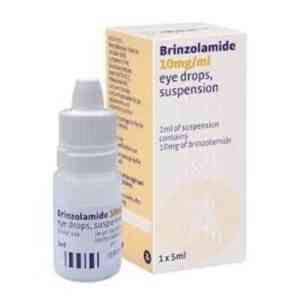
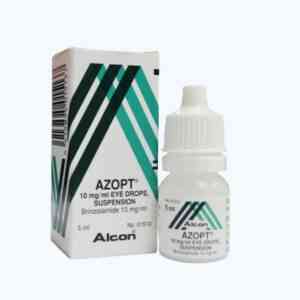
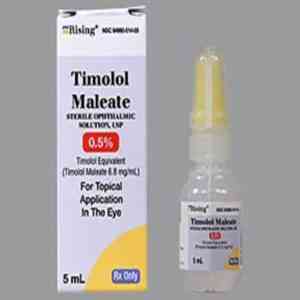
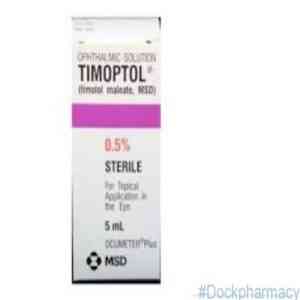

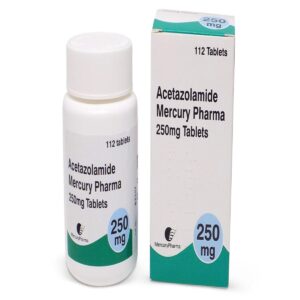








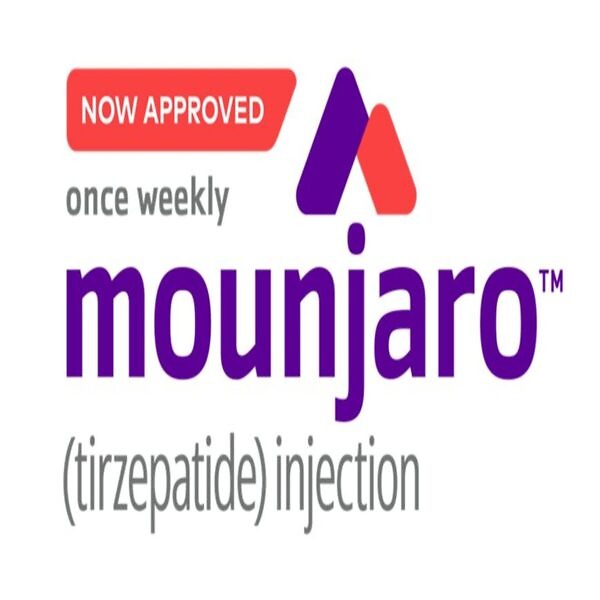


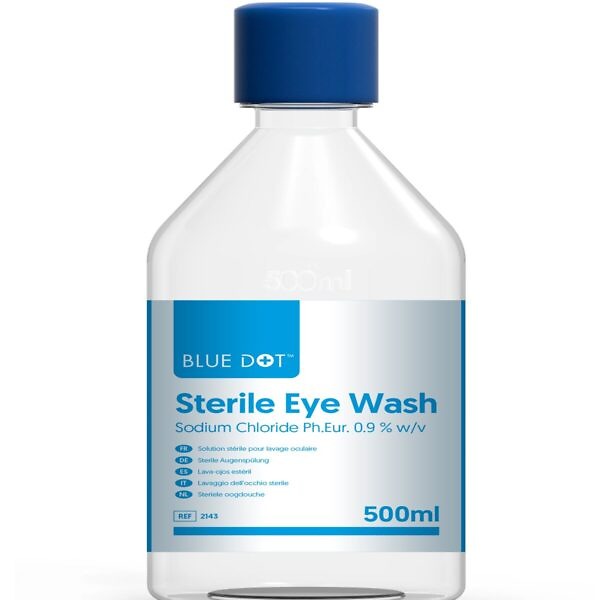

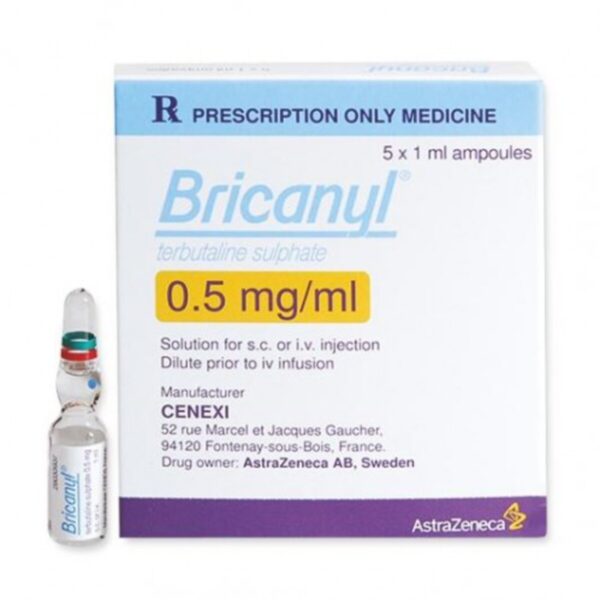
6 reviews for Azarga Eye Drops – Brinzolamide Timolol Eye Drops, 5ml
Georgia Bell (verified owner) –
Julie Cutbush –
Hello Customer. Thanks so much for your 5-star review! We’re glad to hear about positive experience using Azarga. we hope to see you again soon.
Justin D. (verified owner) –
Leslie Austin (verified owner) –
Have ordered this med. for my Labrador dog to help with his glaucoma. Although the condition is extreme he has remained comfortable, which is a big plus.
Jumoke Odebiyi –
Dear Leslie, we hope your dog is very well.
Kirsty A. (verified owner) –
Jumoke Odebiyi –
Dear Kirsty, we appreciate your positive opinion.
Daniel Barwell (verified owner) –
Julie Cutbush –
Dear Daniel, thank you for this positive review.
Daniel Barwell (verified owner) –
Perfect